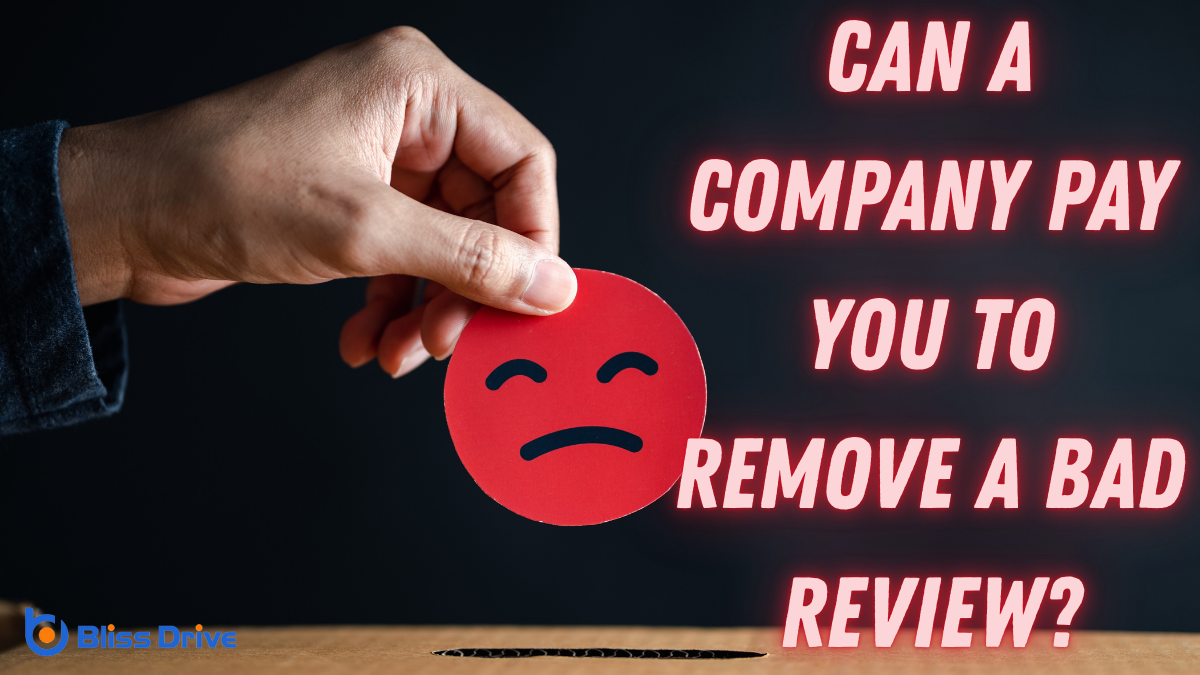Learn More About Us

I've often wondered about the ethics behind companies offering to pay for the removal of bad reviews. While it might seem like an easy fix for a damaged reputation, I'm curious about the deeper implications. Could this practice leadA potential customer referred by an affiliate who has shown interest in the product or service but h... to legal trouble or erode consumer trust? It's a complex issue that raises questions about transparency and authenticity in the business world. What's the real cost of such a strategy?
When a company offers to pay for the removal of a bad review, it's often driven by a desire to protect its reputation and maintain consumer trust. I understand how vital online reviews are in shaping public perception. A single negative review can impact potential customers, influencing their decisions.
Companies might see paying for removal as a quick fix to safeguard their image and prevent any damage to sales.
From my perspective, these actions reflect a deeper concern about maintaining a positive brand identityThe visible elements of a brand, such as color, design, and logo, that identify and distinguish the .... By addressing negative feedback, companies hope to project reliability and quality.
However, I recognize this approach can be controversial. Paying for review removal might seem like companies are trying to hide their shortcomings rather than addressing the root cause of dissatisfaction.

While companies might consider paying for the removal of bad reviews as a strategy to protect their brand, it's important to look at the legal landscape surrounding such actions. You might think it's a simple transaction, but the Federal Trade CommissionThe fee paid to an affiliate for generating a sale, lead, or other desired action. (FTC) has guidelines against deceptive practices, which include manipulating reviews.
Paying for removal could be seen as misleading potential customers by not presenting an accurate picture of the business's reputation.
Additionally, many platforms have terms of service that prohibit altering reviews in exchange for money. Violating these terms can lead to serious consequences, including legal action or being banned from the platform.
Paying to remove a bad review raises serious ethical concerns for businesses. I often wonder if this practice undermines the trustworthiness of a company's reputation.
Isn't the integrity of feedback compromised when businesses manipulate their public image? It feels like a quick fix to a deeper issue, doesn't it? By engaging in such practices, companies might prioritize short-term gains over long-term credibility.
This approach can blur the lines between honest customer experiences and curated narratives. If a business prioritizes transparency, wouldn't addressing the root causes of negative reviews be more beneficial?
I believe that ethical business practices should include embracing criticism as a tool for improvement. After all, isn't genuine growth rooted in understanding and addressing customer concerns authentically?
Addressing ethical concerns around paying to remove reviews naturally leads us to contemplate its impact on consumer trust and decision-making.
I've found that when companies pay to erase negative feedback, it can undermine trust. If potential customers suspect manipulation, they may doubt the authenticity of all reviews, making it harder for them to make informed choices.
Imagine browsing reviews, only to question their genuineness. It could lead you to second-guess purchases, or worse, avoid a business entirely.
On the flip side, honest reviews, both good and bad, help us feel confident in our decisions. We rely on transparency to guide us. If that trust erodes, companies may find it more challenging to cultivate loyal customers who feel understood and valued.

Instead of paying to remove negative reviews, companies can focus on addressing the root causes of dissatisfaction. When responding to criticism, I believe it’s essential to listen and actively engage with customer feedbackInformation provided by customers about their experience with a product or service, used to improve .... By understanding their concerns, companies can make meaningful changes that improve products or services.
This approach not only resolves issues but also builds trust and loyalty.
In addition, companies can encourage satisfied customers to share their positive experiences. When you ask for feedback after a successful interaction, it often results in genuine, favorable reviews that balance any negative ones.
Transparency and honesty are key. By showcasing a willingness to learn and grow, companies can cultivate a positive brand imageThe perception of a brand in the minds of consumers, shaped by advertising, word of mouth, and exper... and reduce the impact of negative reviews naturally, without resorting to payment tactics.
When you're sifting through reviews, it can be tricky to separate the genuine ones from the fakes. I’ve found a few tips that help.
First, watch out for overly positive or negative language; authentic reviews tend to be balanced. Check the reviewer’s profile—if they’ve only posted one review or have a suspiciously high number of reviews in a short time, be cautious.
Look for detailed experiences rather than vague praise or criticism. I also pay attention to the dates; multiple reviews posted around the same time could be a red flag.
Finally, compare reviews across different platforms. Consistency can indicate authenticity. By being observant, you can navigate the sea of reviews with more confidence and make better-informed decisions.
As we navigate the ever-changing digital landscape, I see a pressing need for ethical reputation strategies that prioritize honesty and transparency.
Companies must adapt to maintain trust, and consumers will play a crucial role in shaping these new standards.
How do you think businesses can effectively balance growth with integrity in their online review practices?
The digital landscape is rapidly evolving, and the future of online reviews and reputation managementStrategies used to influence and control a business's online reputation. is at the forefront of this transformation.
I find it fascinating how technology continuously shapes our interactions and perceptions. With advancements like AI and machine learningA subset of artificial intelligence where computers use data to learn and make decisions., businesses can analyze reviews more efficiently, predicting trends and customer needs with precision.
These tools help guarantee that genuine feedback stands out, fostering trust between companies and consumers. As a reader, you might wonder how this affects you.
Well, the power dynamics are shifting. Consumers now hold more influence, and businesses must adapt quickly to maintain their reputations. Engaging honestly and transparently with customers will be key.
It's an exciting time, and I'm enthusiastic to see where this evolution leads us.
While maneuvering the complex world of online reviews, I've realized that ethical reputation strategies are essential for businesses aiming to build trust and credibility.
It's tempting to take shortcuts, like paying to remove a bad review, but that can backfire, eroding trust and damaging reputation. Instead, businesses should focus on addressing genuine concerns, providing excellent customer service, and encouraging satisfied customers to share their positive experiences.
When a negative review appears, I suggest responding promptly and professionally. Acknowledging mistakes and offering solutions shows commitment to improvement.
Transparency isn't just a buzzword; it's a necessity in today's digital age. By fostering open communication and valuing customer feedback, businesses can transform challenges into opportunities, ultimately strengthening their reputation the right way.
As I see it, paying to remove a bad review is a risky gamble. It might seem like a quick fix, but it can backfire legally and ethically, eroding trust with your audience. Instead, let's focus on genuine improvements and transparency. By addressing the real issues and valuing honest feedback, we can build lasting credibility. Remember, authentic relationships with customers are far more valuable than any temporary boost from hiding the truth.
